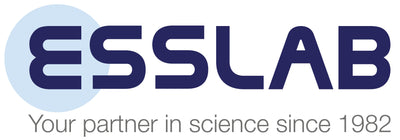ESSLAB Industry News
Recent developments in the use of Certified Reference Materials for baby food safety analysis

Increased public awareness of potentially high levels of heavy metals in baby food has resulted in manufacturers implementing more rigorous testing protocols. The most common heavy metals found in baby food are inorganic arsenic, lead, cadmium and mercury, which are in the World Health Organisation's top 10 chemicals of concern for infants and children.
The development of babies’ brains and other organs can be significantly affected by consumption of the wrong foods, including some fish containing high levels of mercury, and rice which contains high levels of arsenic. These heavy metals also have links to other chronic diseases including cancer.
This blog post will explore how Inorganic Ventures is working in response to current guidelines, creating ISO 17034 Certified Reference Materials (CRM’s) that enable analysts to ensure the safety of baby foods.
What are Certified Reference Materials?
The quality of all analytical measurement is largely dependent on the CRM used by laboratories for their instrument calibration. These high quality analytical standards ensure the accuracy and reproducibility of laboratory analysis. The traceability of these standards is supported by the internationally recognised ISO17034:2016 General requirements for the competence of reference material producers
The relevant CRM’s that have been developed are:
- IV-15400 Custom Multi-Element CRM: .01 ug/mL: As, Cd, Hg, Pb in 2% v/v HNO3 /tr Au
- IV-49656 Custom Multi-Element CRM: .01 ug/mL: As, Cd, Hg, Pb in 5% v/v HN
Certified Reference Materials are the cornerstone of food and beverage Quality Control
CRM's are not only used for quality control in baby food; their use is critical for analysis in all types of food and beverage.
ESSLAB acknowledge that many customers require Custom CRM’s appropriate to their sample concentrations. We offer a comprehensive range of Stock and Custom CRM’s supportive of analysis of food products and provide ppb range analytes with matrices matching your unique sample digestion process.
Inorganic Ventures are accredited to ISO 17034, ISO 17025, and ISO 9001. With standards you can trust, all products, including their releasing agent, undergo two independent validated assay methods that are performed with reliable QC standards. Quality is guaranteed as every LDPE, HDPE, PVC, glass, and Teflon bottle is processed by chemical treatment, plus full UV inspection is ensured for detection of contaminants.
All products are dispensed, sealed, and documented for shipment to your exact specifications.

Leave a comment